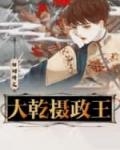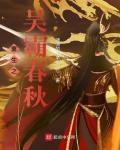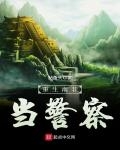Volume 1: The Wind Rises in Tumubao Chapter 15: The Ming Army's Three Axes
That night, the Ming army camp was brightly lit, and each camp was counting troops and sorting out equipment.
Zhu Qizhen stayed up all night, patrolling the camp and calming the troops.
The soldiers were already exhausted after a day of hard fighting, but they were greatly encouraged when they saw the emperor personally visiting them.
Some older veterans were even more moved by the scene and kept telling the new recruits around them that when Emperor Taizong led the army to war, he also did the work personally.
After a night of investigation, more than 30,000 wounded soldiers and some elderly and infirm people were found and returned to Beijing first, led by a group of civil officials including Kuang Ye.
The remaining 40,000 or so men were all elite soldiers, who stayed behind to prepare for the final decisive battle.
In the morning breeze, Zhu Qizhen began to call the roll.
Zhang Fu was the first to go out: "The Fifth Army Camp has 8,000 soldiers in the center, 7,000 soldiers in the left patrol, 6,800 soldiers in the right patrol, 7,200 soldiers in the left wing, and 7,600 soldiers in the right wing, a total of 36,600 people. We have now assembled. Please give your instructions, Your Majesty!"
Chen Ying stepped forward and said, "The Shenji Battalion has 3,500 men, all ready. Please give your instructions, Your Majesty!"
Li Zhen stepped forward and said, "Your Majesty, the three thousand troops in the three thousand camps have assembled. Please give your instructions!"
Zhu Qizhen looked at the 3,000 cavalrymen lined up in an orderly formation and said loudly, "Back then, Emperor Taizong formed a 3,000-horse battalion with only 3,000 cavalrymen. That 3,000-horse battalion brought glory to the Ming Dynasty. Although the new 3,000-horse battalion was hastily formed, you have a great responsibility. I have only one request: wherever the sword points, you must march forward without hesitation!"
Li Zhen knelt on one knee and clasped his hands together: "On behalf of the three thousand soldiers of the battalion, I promise to the emperor that I will not fail in my mission!"
At the camp gate, a horse galloped towards the rising sun.
Yuan Bin dismounted and said, "Your Majesty, I have already found out that the main force of Yesen's army is on the other side of the river, but Yesen himself has not arrived yet. The current commander is Bayan, the leader of the left wing of the Oirat tribes. He has about 50,000 troops, most of which are cavalry."
Zhu Qizhen nodded. It seemed that Yesen had asked Boyan to lead a group of people to lead the charge.
Bayan was a man of courage but no strategy, and he had never seen his own tactics before, so he was completely unprepared for this new type of tactic: the three-stage musket attack.
If he were the commander, the battle would be much easier to fight.
Under the gaze of everyone, Zhu Qizhen slowly drew out the dragon-patterned sword from his waist.
"Pass on my order, prepare for battle!"
On the other side of the river, a low horn sounded, and the vanguard of the Oirat army began to cross the river.
The cavalry were at the forefront. The river water only reached the level of the horses' bellies, so they reached the other side with almost no difficulty.
Chen Ying stood on the hillside, watching the increasing number of people crossing the river, and gave orders decisively.
"Fire!"
The gunner was already ready. He lit the fuse as soon as he received the order, and white smoke hissed out.
Boom!
Boom!
The General's Cannon began to show its power, and large lumps of iron smashed towards the Wala soldiers on the shore.
As soon as the Wala people came ashore, there was a river behind them and they had nowhere to hide, so they were immediately thrown to the ground.
Then, clean the chamber, load, and fire...
Boom!
Boom!
As the artillery roared incessantly, the number of Oirat people continued to decrease. However, the number of attackers this time was too large. The Ming army only had twelve cannons with a slow firing rate. Gradually, more and more Oirat people broke through the artillery blockade. The cavalry formed a square formation and began to charge towards the Ming army's position.
From the Guishui River to the Ming army camp was a vast wilderness with no shelter or obstruction.
With a distance of only five hundred steps, the cavalry could reach the destination in an instant with a full-force charge.
Just when the Wala cavalry rushed to within two hundred steps of the Ming army, something unexpected happened. For some unknown reason, the war horses suddenly fell to the ground. The knights on the horses were caught off guard and were thrown off their horses one after another.
Bayan stood on the other side of the river and watched from afar. He had no time to judge what was happening on the front line. If it was a tripwire or a horse trap, his cavalry combat experience was rich and it was impossible for him to turn a blind eye!
In the Ming army formation, Pingxiang Earl Chen Huai was extremely excited, because the key to the Oirat army's stumble was the pit he and his men dug overnight.
Although these pits are not big, as long as the war horse's hoof steps on them, even if it's just on the edge, the entire hoof will sink into them.
The consequence is that the horse stumbles and the rider falls.
It was not until now that he truly understood why the emperor asked him to dig such a small hole.
If it is a big pit, it will definitely not escape the eyes of the Wala people. These people have grown up on horseback since childhood, and avoiding horse pits is like a piece of cake for them.
However, this kind of small pit is different. Because it is small, it is hidden and difficult to be discovered unless the infantry marches slowly.
Finally, a centurion discovered these small pits on the ground and immediately warned his comrades. The cavalry in the formation dodged one after another, and the number of lost horses began to decrease.
After breaking through the pit formation, there were only the last hundred steps left to the Ming army's position.
The Oirat people were like hungry wolves seeing sheep. They shouted loudly, charged forward, and shot arrows with bows.
The Ming army still used the original tactics, with the rattan shield soldiers at the front to defend against the flying arrows.
"shooting!"
With an order, the Ming army's formation suddenly changed. The rattan shield bearers retreated quickly, revealing rows of muskets ready to fire.
boom!
boom!
boom!
Lead bullets rained down on the Wala cavalry like raindrops, and fifty or sixty people fell off their horses in an instant.
These Oirat people were all experienced in battle. Facing the attack of muskets, they were not afraid at all, but became more excited.
Because they knew that although the musket was powerful, the process of loading ammunition was very cumbersome, and in the face of high-speed charging cavalry, there would be no chance to fire after firing once.
Only a few dozen people were lost, which can be completely ignored.
However, just when they thought they had victory, the sound of musketry rang out again.
boom!
boom!
boom!
After the smoke cleared, dozens of Wala cavalry were shot again. This time, they looked a little surprised.
But seeing that the Ming army was so close, he could not care less and just charged!
boom!
boom!
boom!
The sound of muskets rang out again, and this time the Ming army lowered the muzzles of their guns and specifically shot at the war horses. Although not many Wala cavalry were killed or wounded, more than a hundred horses were hit, and immediately there was another round of people and horses falling to the ground.
This was the second time the Ming army had used the three-stage attack tactic. They were more skilled than the first time and easily shot and killed more than 300 enemies.
On the other side of the river, Bayan, who was standing on a hill watching the battle, frowned and a look of surprise appeared on his face.
He was already very familiar with the combat tactics of the three major camps of the Ming army.
After the two armies engaged in battle, the Shenji Battalion was the first to move to the front of the formation and prepare for firing artillery and muskets, firing in unison under unified command.
After the Shenji Battalion finishes shooting, it will immediately retreat to the two wings of the team, and then the cavalry from the Sanqian Battalion and the Wujun Battalion will immediately fill the vacant positions and launch an attack on the already damaged enemy forces.
During the Yongle period, the Ming army's seemingly simple tactics once caused extreme panic to the arrogant Mongolian cavalry.
However, as time went on, some countermeasures were finally found, such as dispersed charges.
But this time it was completely different. The Ming army's muskets were like a rainstorm, continuous and endless.
With such a shooting speed, no matter how dispersed the cavalry are, they will eventually be shot at by the enemy.
It seemed that the two sides were only a few dozen steps apart, but no matter how their troops charged, they could not move forward any further.
At this moment, he suddenly realized why Ala was defeated by this Ming army.
Thinking of this, Boyan quickly ordered someone to blow the horn and recall the troops.






